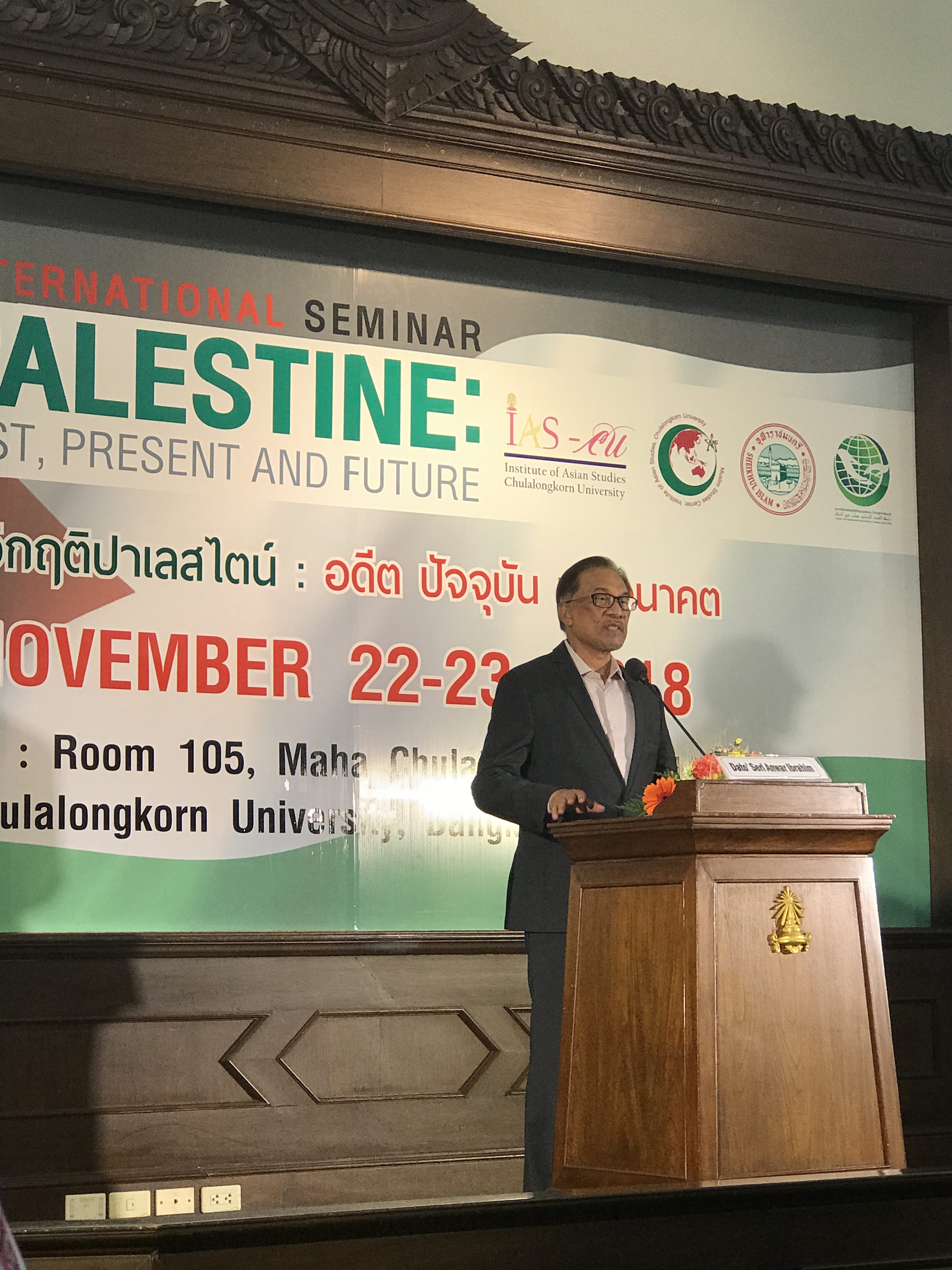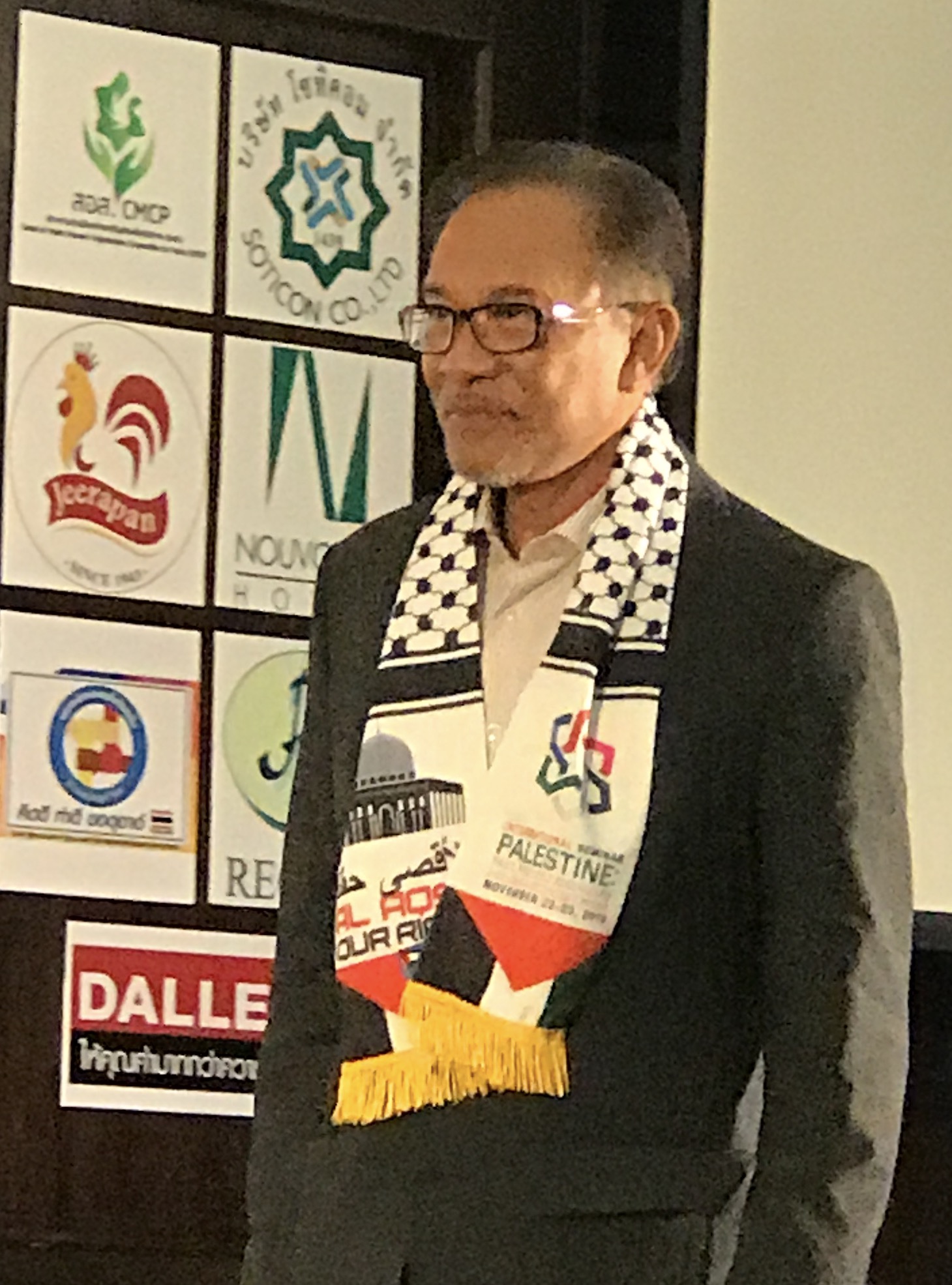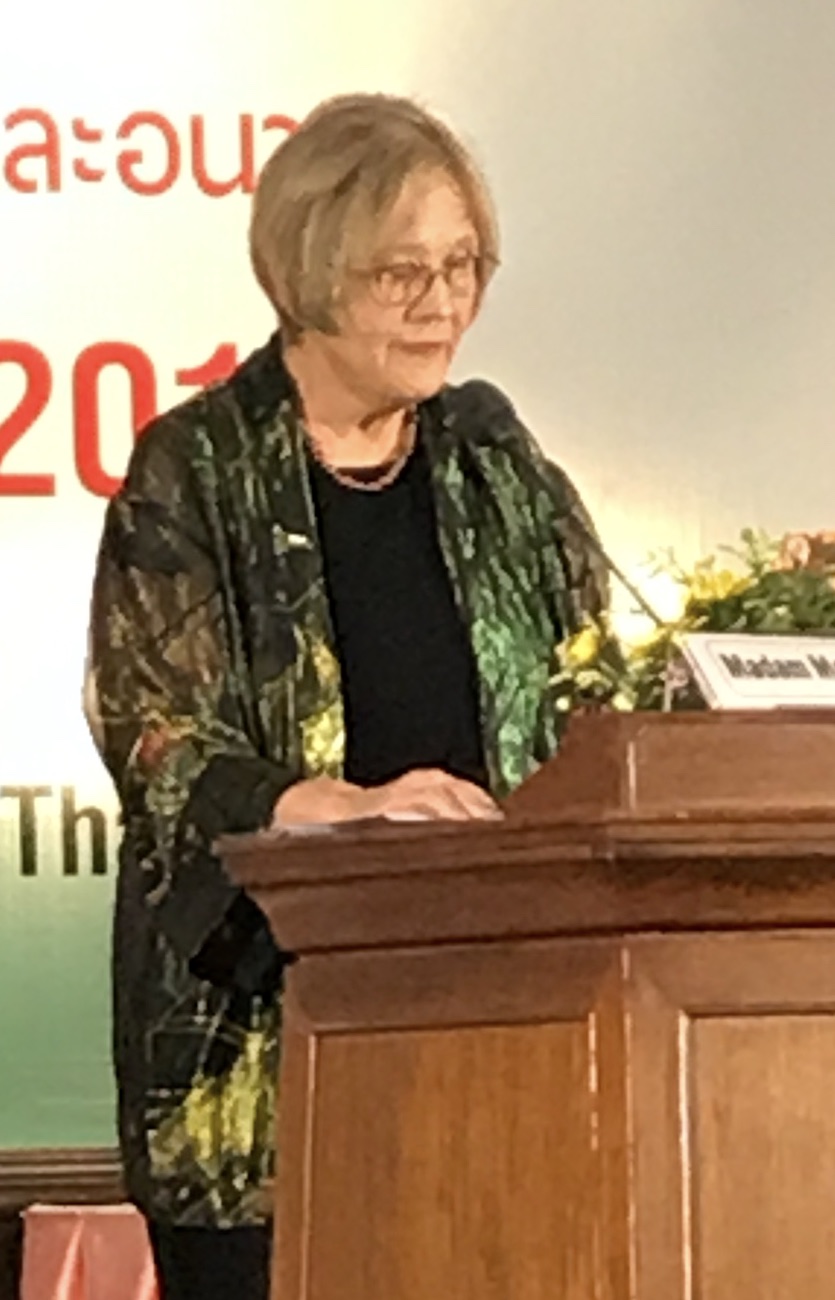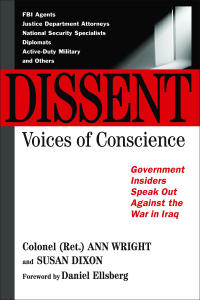
29 Nov, 2018
Malaysian leader Anwar Ibrahim on Palestine: Their pain is my pain
Bangkok – With Israel wiping Palestine off the map in slow motion, accompanied by a wink-and-nod acquiescence from a growing number of Arab and African countries, the last remaining hold-out appears to be Asia. On 23 November, resurrected Malaysian political leader Anwar Ibrahim delivered an inspiring message of support for the long-suffering Palestinians in their quest for peace, independence and justice.
Mr. Anwar was in Bangkok for a private visit to launch a book on his political comeback. However, he made a special appearance at the first seminar on Palestine organised at Thailand’s eminent Chulalongkorn university. Given his stature, his words gave the event an enormous sense of purpose, elevating its value well beyond the normal talk-shop forums.

Today, 29 November is the International Day of Solidarity with the Palestinian people. This report on resurrected Malaysian political leader Anwar Ibrahim’s special appearance at the first conference on Palestine organised at Thailand’s eminent Chulalongkorn university is being published to mark this important day.
Predictably, the seminar had run into internal opposition from some university academics who felt that it would signal a “taking of sides” by the educational institution. This argument was rejected on the grounds that the university holds numerous forums on geopolitical issues where a core subject of focus is “Islamic terrorism”, but has never held a forum to discuss what is widely recognised as a root cause of terrorism, the Israeli occupation of Palestine.
This argument was underscored by Professor Dr. Pirongrong Ramasoota, Vice President for Social Outreach and Global Engagement, in her opening remarks.
She said, “The issue (of Palestine) is not just a Middle Eastern concern but also also affects Thailand and ASEAN, as it has the rest of the world. The relevance lies not only in terms of geopolitical and economic interests but also in moral responsibility to us as members of humankind. Understanding the conflict in its multifaceted dimensions would ensure that Thailand and ASEAN region better strategise a national and regional approach to the issue.”
Prof Pirongrong noted that the forum was in line with Thai government policy to recognise a two-state solution as well as the representation of the State of Palestine at the UN.
She said the gathering of eminent academics and scholars “will likely help us shed light on the topic which is neither sufficiently nor fairly unraveled and investigated. Your input will help us provide insightful perspectives towards conflict transformation and resolution.
She noted that just a month ago, Malaysian Prime Minister Dr Mahathir Mohamad had also delivered a lecture at Chula and explicitly addressed the need to recognise and address root causes of terrorism. Hence, she added, Anwar Ibrahim’s “presence attests to our collaborative effort to address one of the root causes of a global conflict that has affected us all.”

Mr. Anwar echoed this in his remarks, praising the spirit of inclusiveness of Chulalongkorn University for allowing an articulation of views in a free, democratic and peaceful manner. It shows that the university “encourages reasoned discourse, in an atmosphere of understanding that is so required in our countries.”
Commending the Thai government, he noted that he, too, is now free to say what he wants. If he was holding any government position, he said, he would have been bound by the rules of protocol and diplomatic niceties.
His credibility was further bolstered by the fact that Malaysia is a thoroughly democratic country, having ousted a corrupt government via a peaceful and fair vote. And he himself had faced a travesty of justice, being persecuted, jailed and assaulted, all of which are being faced by the Palestinians, Mr. Anwar said.

Mr Anwar with Chulalongkorn University Professor Dr. Pirongrong Ramasoota
He said that although the Palestinian cause was dear to the Muslim world, it is not just a Muslim issue. “This is about justice and humanity. Justice transcends national boundaries, religious and racial differences.”
Chiding “global intellectuals” for allowing the oppression to continue, he highlighted the historic role of colonialism, and the complicity and hegemony of the superpowers in the “politics of dispossession.”
“In 1948, we talked about the politics of dispossession. In 2018, the West Bank and Gaza continue to be raped, and the world seems muted and unable to do anything.” He said this continues while all leaders talk about freedom and justice, leading to a growing disillusionment with peace and justice, too.
Identifying personally with the Palestinians, he said, “My land was taken, my home was destroyed and my children expelled. How can any one of any religion allow this to happen? This is about humankind. Do they (the superpowers) care about peace and justice?”
He also blasted U.S. President Trump’s decision to move the U.S. embassy to Jerusalem. “This is not just about a piece of land, or history or political machinations of leaders. We are talking about lives and futures of our brothers and sisters humiliated year after year and decade after decade and with no immediate hope and end in sight.
“I understand personally the suffering and physical abuse (of the Palestinians) as I myself was assaulted to near death. You have to understand the struggle and history of a society before you refer to any issue of violence taking place.”
He also criticised the international media for its blame-the-victim approach. “While the rape of the land continues, village after village is destroyed, the reaction of the international media that it was (the result of) violence by the Palestinians. Robbery and rape of land in broad daylight and you are silent, only talking by the atrocities and crimes of those who have to defend themselves.”
Arab governments were unable to do anything because of their own democracy and justice deficit. As such, he said, it was vital for the Islamic world to put its own house in order first, as Malaysia itself is aspiring to do.
Citing the rule of law issue, he referred to Egypt where hundreds of people can be put on mass trial and sentenced to death. “What kind of justice is this? How can you defend the rights of Palestinians when you cannot defend your own people?”
He also noted the similarities between the Palestinian issue and the atrocities against the Muslim Rohingyas in Myanmar, and wondered how a leader like Aung San Suu Kyi who once enjoyed global popularity and support, could now be silent about the politics of dispossession taking place in her country.
“It is time for countries in ASEAN, Malaysia, Indonesia and the rest to speak up and be counted and not continue to be muted. What is constructive engagement? How can you not take a strong position and stand up to be counted wen you have clear atrocities?
“It is the same with Palestine. We must be more vocal and effective in taking a firm resolution in defense of their lives and justice. Yes, the vast majority of them are Muslims, but a large number of Palestinians are Christians, and they also face the same discrimination and atrocities, and somewhat similar apartheid.”
He called for the issue to be kept alive in global forums, noting that this was an era of “post-normal times.” Countries such as the United States which were once bastions of free trade and democracy are no longer so. China which was a closed, protectionist society is now arguing for free trade. “Even in Malaysia, who would have thought the Mahathir and Anwar would be working together?”
Another major speaker at the event was U.S. Army Col (Ret) Ann Wright, a former military officer and diplomat who is one of a large group of former U.S. government officials opposed to U.S. policies. They go by the name of Voices of Conscience. She savaged the U.S. media and the pro-Israeli Zionist lobby groups and their massive financial and political influence on the U.S. government as being an inherent part of the problem.
Click on the links to get the full programme and list of speakers and text of the Bangkok Declaration
 U.S. Army Col (Ret) Ann Wright |




Liked this article? Share it!